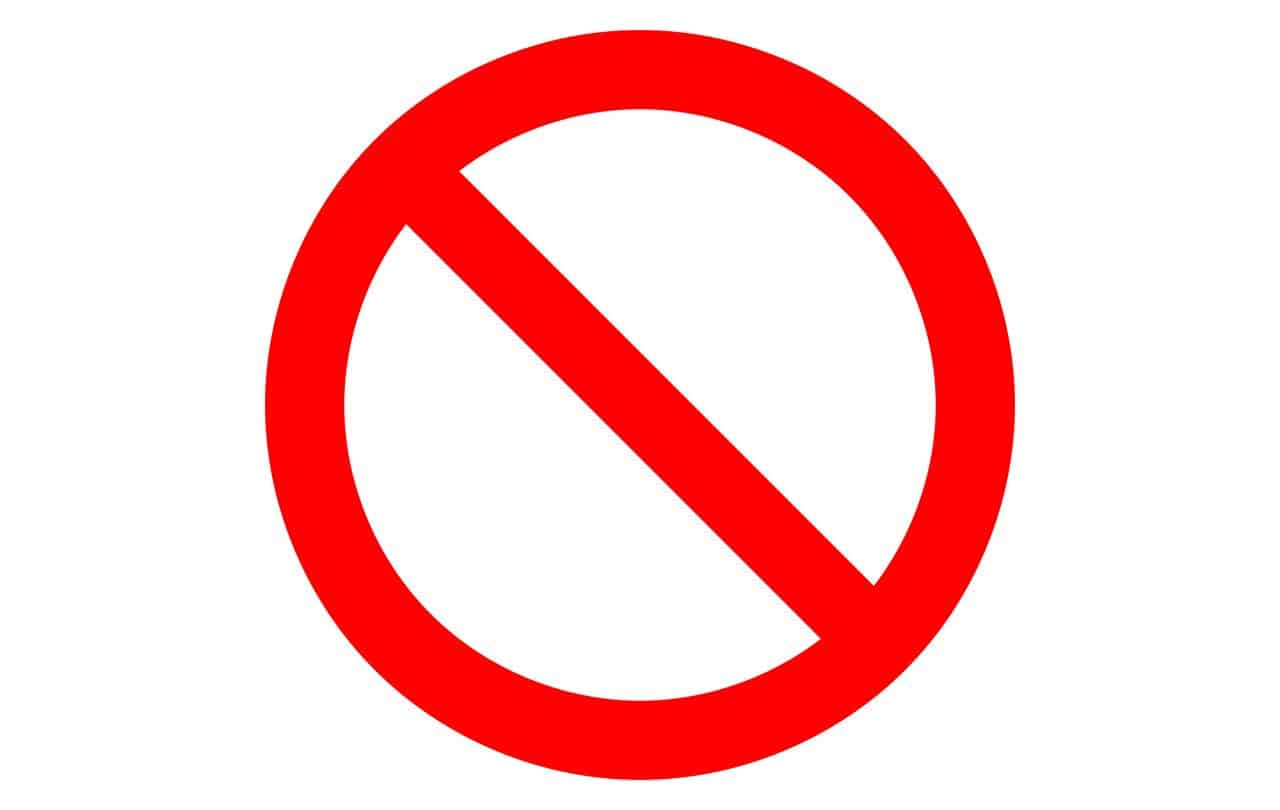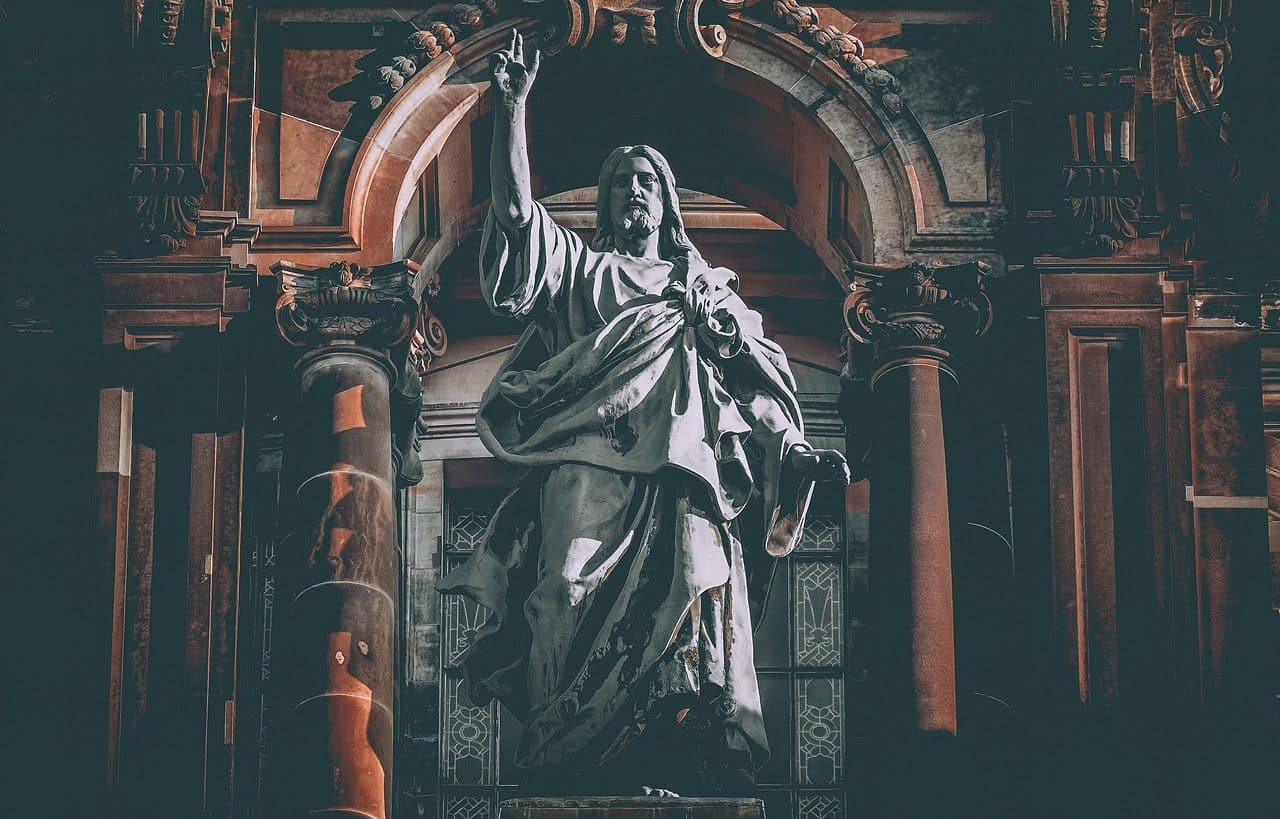
The ban limits people's freedom.
Prohibition is the act of prohibiting or establishing a veto over certain actions, behaviors or substances. This restriction may be imposed by laws, social regulations or authorities, and its objective is to regulate people's behavior based on ethical, moral, safety or other criteria.
Throughout history and in various cultures, prohibitions have played a significant role in the formation and evolution of societies. This form of limitation can address a wide variety of topics , such as the prohibition of certain foods, religious practices, social behaviors, or the consumption of certain substances.
A prominent example in history was Alcohol Prohibition in the United States , which took place from 1920 to 1933. This measure, prompted by the Volstead Act , sought to reduce the problems associated with excessive alcohol consumption, but had no side effects. desired, such as the increase in organized crime and the proliferation of speakeasies.
In various cultures, prohibitions may be linked to religious beliefs , such as the prohibition of pork consumption in Judaism and Islam, or to ethical considerations, such as the prohibition of slavery in many places around the world.
Bans can have diverse impacts on society , from promoting healthy behaviors to generating resistance and defiance on the part of those who feel affected by them. Today, society continues to debate and establish prohibitions based on changing values and emerging concerns.
in art
Prohibitions have had a significant impact on art , music, and popular culture throughout history, influencing creativity and cultural expression. These restrictions, whether imposed by society, government authorities, or religious institutions, have led to the emergence of forms of artistic expression that challenge established guidelines, and have often been the catalyst for subversive cultural movements .
The sanction of certain themes or forms of artistic expression have led to the creation of controversial works. Art, music and popular culture have been battlegrounds for those seeking to break with impositions, often facing legal consequences. The exclusion and denial of certain works has given rise to creative contravention, with artists exploring forbidden territories and challenging established conventions.
Cultural smuggling has emerged as a response to bans, where works of art, music or cultural content considered illegal are trafficked or distributed clandestinely. These acts have led to the creation of artistic and musical movements that operate outside established guidelines and statutes.

Bans appear in various areas, sometimes in pursuit of normalization, and others for censorship purposes.
In the digital world
Bans in the digital world, including censorship , internet restrictions, and the dynamics of “political correctness,” have emerged as crucial issues in the digital age, impacting the way information is shared, accessed, and communicated online. line.
Internet censorship takes the form of government restrictions, content blocking, and digital surveillance. In some countries, authorities control and limit access to certain websites, social networks and communication platforms, with the aim of maintaining control over the information circulating online.
Some social platforms impose content restrictions and policies to maintain certain standards. This includes prohibiting violent content, discrimination, harassment and other types of inappropriate behavior. Removing posts that go against these policies can be seen as a form of private censorship.
The term politically correct in the digital sphere refers to self-censorship or restriction in language and behavior to avoid offending specific groups. Online platforms often set guidelines for acceptable language and permitted content, sparking debates about free speech versus protecting the sensitivities of certain groups.
In short, bans in the digital world raise important questions about freedom of expression, privacy and access to information . While some restrictions may be necessary to maintain a safe online environment, it is crucial to find a balance that respects individual rights and encourages diversity of opinion in the digital age.
Religious prohibitions
In ancient times, religious prohibitions were fundamental in structuring the life of communities, establishing regulations and precepts that had to be respected under the threat of sanctions and punishments. These regulations, often imposed by religious leaders or sacred figures, outlined what was permitted and what was prohibited , creating taboos around certain actions or behaviors .
Religious decrees and mandates were considered divine ordinances that had to be strictly followed, and violation of these rules carried severe penalties. Religious crimes were punished with fines, censures and exclusions from the community . Religious wrongdoing meant being identified as an offender, someone who contravened sacred norms and challenged established morality. In these cases, discrimination and intolerance were common.
Religious policing was a widespread practice, with ecclesiastical authorities and spiritual leaders exercising jurisdiction over the morality and conduct of the community. Control over the actions of individuals was carried out through the imposition of dogmas, guidelines, and conventions. Violation of religious norms could result in the revocation of privileges, the confiscation of property, and even the imposition of more severe penalties such as imprisonment.
Religious conservatism and tradition played a crucial role in creating a moral code , establishing standards that had to be respected under the threat of divine punishments. Constant surveillance and the prohibition of certain practices became barriers to avoid moral corruption, with measures such as the closure of activities considered illicit and the imposition of curfews to guarantee rectitude and prudence.

Religious prohibitions were an indivisible feature of various ancient societies.
Arguments in favor
- Collective well-being : Bans may be necessary to protect collective well-being, as certain actions or behaviors may have negative consequences for society as a whole;
- public safety : some prohibitions seek to guarantee public safety , avoiding actions that could endanger the life or integrity of people;
- preservation of cultural values : prohibitions can help preserve the cultural and ethical values of a society, preventing the acceptance of practices that go against them;
- Equity and justice : Bans can be used to promote equity and justice, avoiding discriminatory practices or practices that perpetuate inequalities.
Arguments against
- Individual freedom : Bans can limit individual freedom, restricting people's ability to make decisions about their own lives;
- deflection of personal responsibility – bans may deflect personal responsibility, as some argue that people should be free to bear the consequences of their own decisions;
- Creativity and expression : Prohibitions can limit creativity and artistic expression by imposing restrictions on the content and form of presentation;
- Possible counterproductive effect : Some prohibitions may have counterproductive effects, such as increasing the attractiveness of what is prohibited or generating illegal markets.
